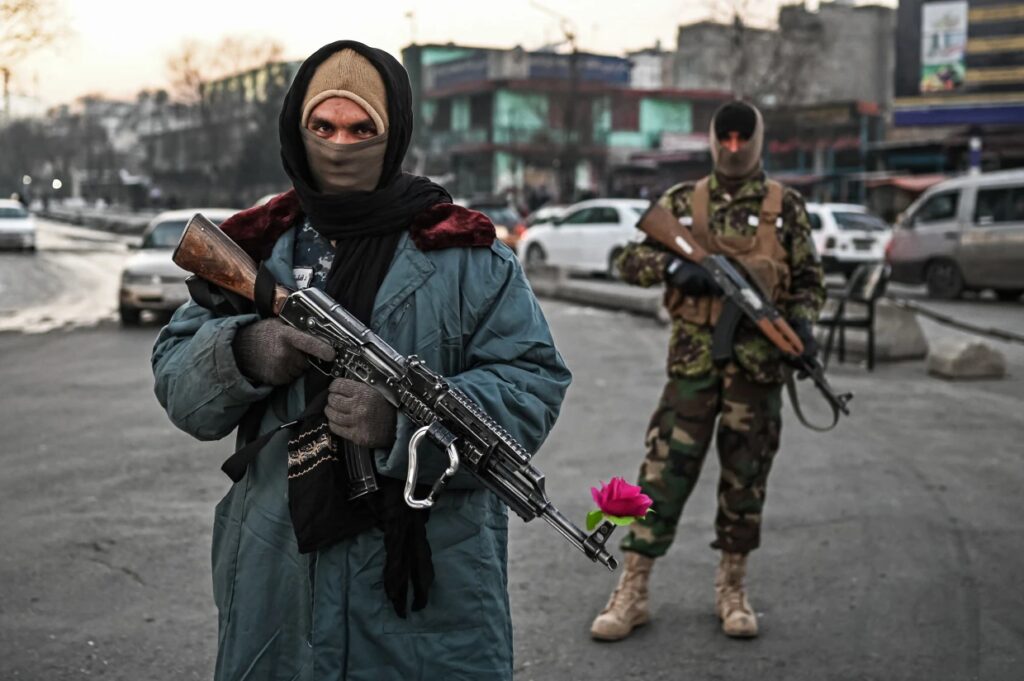The Taliban have halted all evacuee flights out of Afghanistan for the past two weeks

The Taliban want to use the flights to send their own people abroad to earn desperately needed money. The Afghan economy is in tatters.
The Taliban have halted all flights of Afghan evacuees for the past two weeks in a dispute about how the airport in Kabul is run and who is allowed on the evacuation flights, according to a congressional source, two refugee advocates and a source familiar with the matter.
A State Department official involved in relocation efforts confirmed that flights have stopped. “We are hopeful that flights will resume shortly, though as usual, winter weather conditions and airport operations remain additional factors to be aware of.”
At issue are U.S.-chartered Qatar Airways flights that had been running between Kabul and Doha. The Taliban began demanding several seats on the flights for Taliban fighters and sympathizers to leave the country so they can work in other countries and send desperately needed money back to Afghanistan, according to a congressional official and the source familiar with the matter. The country’s economy is in tatters, and millions of Afghans are short of food as temperatures drop.
The Taliban’s argument is that they run the country and that it is their airspace and airport the Qataris are using, so they should get a certain number of seats on the flights.
Before the flights stopped, the Taliban were using the seats to send migrant workers out of Afghanistan to Qatar, Saudi Arabia and other destinations to find work, according to the congressional source and the source familiar with the matter. While Taliban fighters were designating who got the seats, it is not clear whether the people leaving were hardened Taliban fighters, sympathizers, civilians or a combination of the groups.
At least some of those the Taliban wanted seats for had been living and working in Persian Gulf countries but had returned to Afghanistan and then found themselves stuck there when the government collapsed amid the U.S. withdrawal in August, the source familiar with the matter said. Those workers are trying to return abroad, which the Taliban wants to facilitate.
Chartered flights for Afghan refugees bound for the U.S. are operated by Qatar Airways, the only carrier the Taliban have allowed to fly regularly out of Kabul. Before the Taliban suspended flights, about one or two chartered flights a week were heading to Qatar, refugee groups and U.S. officials said.
When the Qatari government declined to continue providing seats, the Taliban stopped the flights.
The Taliban and the Qatari government have been at odds over how the Taliban are running the airport since the Taliban officially took it over on Aug. 31. The Qataris have argued that the airport and its security are not up to international standards, and they have decried cases in which the Taliban harass Afghan refugees at the airport or prevent them from boarding their flights. The Taliban have also submitted “sloppy paperwork” to Qatar for passenger lists, one of the refugee advocates said.
The feud is between the Qataris and the Taliban, said the congressional source, the two refugee advocates and a State Department official.
But the source familiar with the matter said that in some cases, the Qataris are operating the flights for the Americans and that the decision to deny seats to the Taliban was at the urging of the U.S.
“I can confirm for you that the U.S. is not involved in the dispute and has not been,” said a U.S. government source familiar with the situation. “This remains between Qatar and the Taliban.”
Since the full withdrawal of all Americans from Afghanistan in late August, the Biden administration has said it continues to strive to get U.S. citizens and legal permanent residents out of the country.
State Department spokesman Ned Price told NBC News: “It is essential that Kabul Airport remain operational in order to ensure safe passage, commerce and, above all, urgently needed humanitarian aid in Afghanistan. The Qataris have been unfailing, generous and critical partners in this important work, and we support the quickest possible resolution to any disagreements. We continue to press the Taliban to uphold their safe passage commitments.”
More than 74,000 Afghans were evacuated to the U.S. in the August withdrawal in an effort dubbed Operation Allies Welcome, according to the State Department. But tens of thousands of Afghans, including those who worked for the U.S. military or for Western organizations, are still trying to leave the country and resettle in the U.S.
There is hope that the dispute will get sorted by January, the refugee advocate said.
